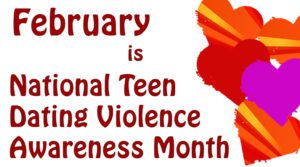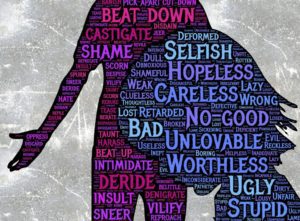I don’t miss teenage dating.
There are many ways I look back upon high school memories with great enjoyment. Those years were filled with fun, energy, and blind optimism about my future. I don’t know about y’all, but despite the fun of those years, you could not pay me to return to my teenage self. The angst, drama, and insecurities I held were often so loud that it made appreciating all of that good stuff seemingly impossible. And worst of all — dating. I am so grateful I made it through teenage dating years relatively unscathed. There were some partners I recall whose negativity and criticism of me and my body intensified my insecurities. There were others who ghosted me or dropped me for another girl, leading me to question my own worth. And a handful of interactions that made me wonder if my body made me more valuable than my heart and mind. But overall, my dating years were relatively uneventful and unremarkable. This, unfortunately, is not true for many of our young people today.
February is Teen Dating Violence Awareness Month.

In graduate school, I spent a year serving at the YWCA of Central Alabama as an AmeriCorps member. I traveled to area schools teaching a curriculum on creating healthy relationships and preventing dating violence. The information I learned that year was unsettling. One in three adolescents report having been abused emotionally, physically, or sexually by an intimate partner (LoveIsRespect.org). Our young people today are facing extremely painful and frightening experiences through dating in what should be a time of fun, excitement, and hope. These formative years impact the ways in which teenagers will engage in relationships into their adult years. As parents, it’s important that we are educated and have informed conversations with our kids on this topic.
Domestic violence myths run rampant in our society.
My intent for this post is to address a few of the most common myths I’ve encountered, as well as to provide appropriate ways of supporting loved ones when faced with harmful relationships.
Myth 1: Abusive relationships don’t happen here.
Truth: Abuse crosses all societal boundaries — it impacts every neighborhood, SES, gender, sexuality, race, ethnicity, and religion. There is no typical abuse victim. The notion that domestic violence only impacts certain communities, or thinking It won’t happen here, makes abuse go unseen and acts as a barrier for many people in leaving relationships.
Myth 2: Abusers are easily identified.
Truth: There is no typical abuser. Abusers can often be charming, likable people, and the abusive behaviors may be exclusive to romantic relationships. While the majority of reported abuse involves a male perpetrator, females can also use abusive behaviors within a relationship. Abusive relationships can look like anything. There are certainly red flags of abuse such as controlling patterns of jealousy, intimidation, isolation, and anger. But letting stereotypes blind us to these behaviors can keep people silent.
Myth 3: If it were really that bad, people would just leave.
Truth: Abusive relationships don’t generally start out abusive. There are often many things which seem good about this relationship. Over time, though, subtle (and not so subtle) attempts at obtaining control and dependence can quietly create barriers that keep people from leaving. Violence reinforces the power of these behaviors (Check out the Power and Control Wheel for information on this cycle). Simply telling a person, “You should just leave” is never a helpful response. In fact, the most dangerous time in an abusive relationship is when trying to leave.
Resources for Providing Support
Leaving a harmful, toxic relationship can be a difficult, painful process. If you are walking through this with a loved one, patience and empathy will be critical companions. The most important thing for a victim to hear in an abusive relationship is the abuse is not her (his) fault. And when emotional support isn’t enough, here are a few other ways of helping.
- Have honest, compassionate, and informed conversations to identify patterns of abuse that are occurring. Love Is Respect has a thorough resource for parents helping children in abusive relationships.
- Assist with creating a safety plan, which can empower a person to leave when she/he is ready.
- Reach out to local professionals for help. Birmingham has an incredible network of service providers equipped to provide compassionate care.
- One Place Metro Alabama Family Justice Center provides coordinated services to victims and survivors of domestic violence (DV) and sexual assault all under one roof. Their contact number is 205-453-7261.
- YWCA of Central Alabama offers DV services to residents of Jefferson, Blount, and St. Clair counties. Their 24-hour crisis line is 205-322-4878.
- Safe House offers DV services to residents of Shelby, Clay, Chilton, and Coosa counties. Their number is 205-669-7233.
- Crisis Center Birmingham is a 24-hour crisis line, with specific lines for teenagers and for rape response support. That number is 205-323-7273.
Lastly, a word on prevention. Having honest conversations with our kids before abuse ever enters the picture is really critical and paves the way for future conversations if they are ever unsafe in a relationship. Periodically assess your teen’s relationship health. Does their partner use respectful language? Do they feel equal in the relationship? Are they continuing to engage with other friendships? The Equality Wheel is a great resource for teaching our kids how they and their partners deserve to be treated.
I would love for you to comment below with ways you are instilling the value of equality in your own children!












